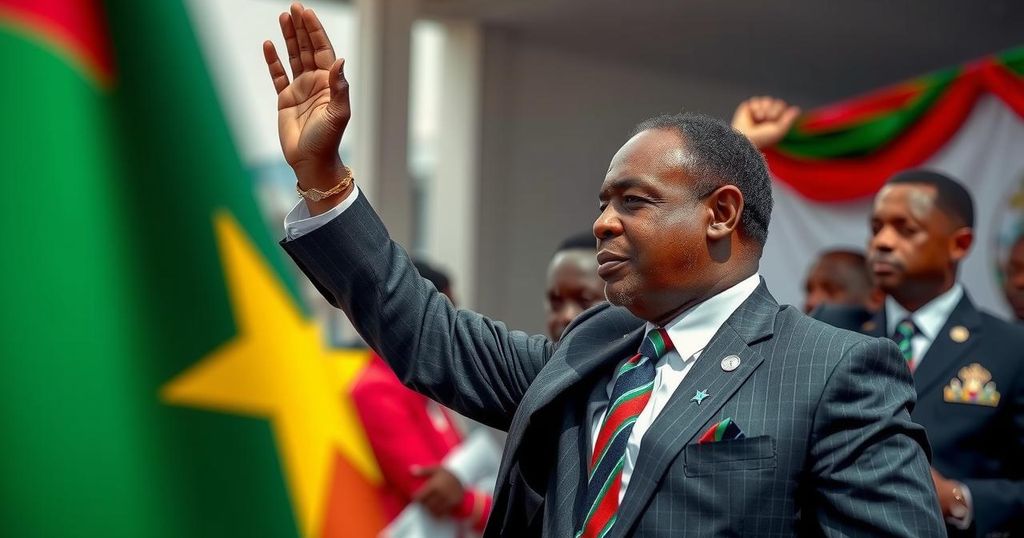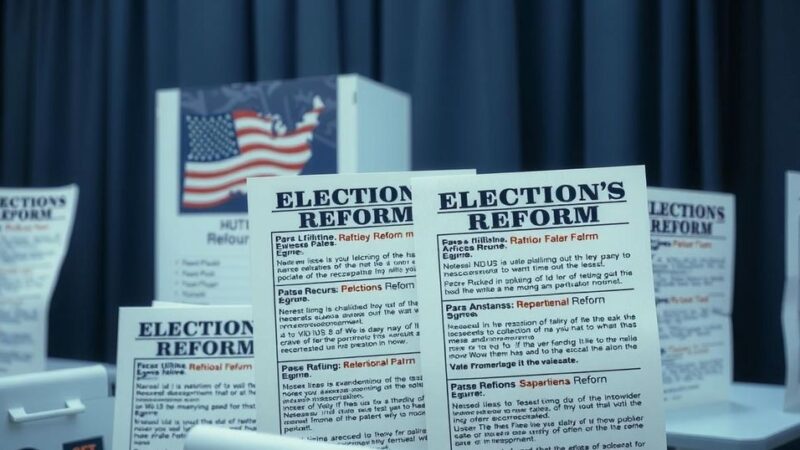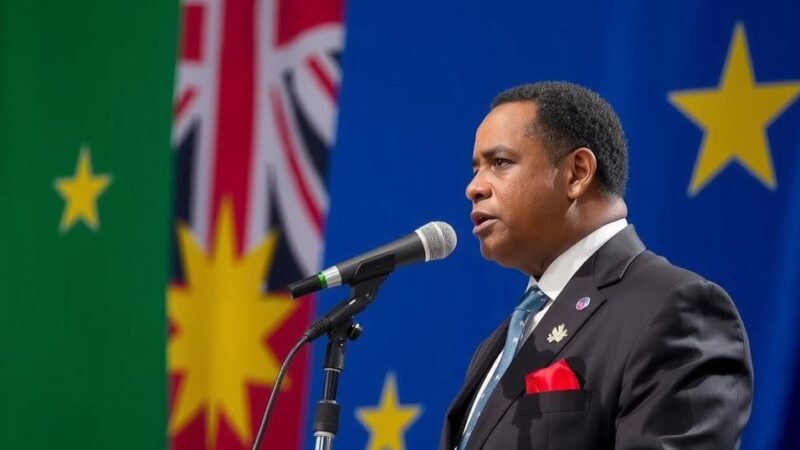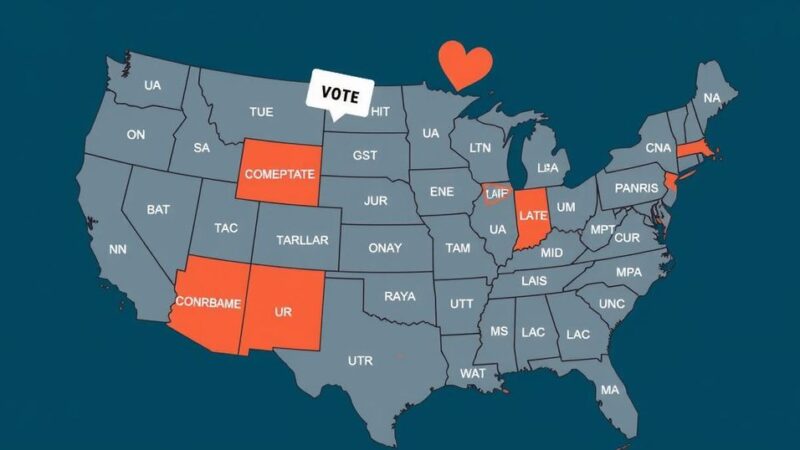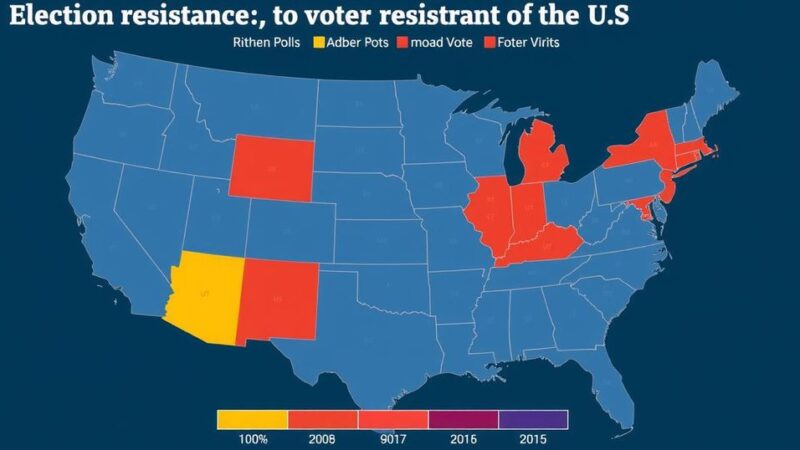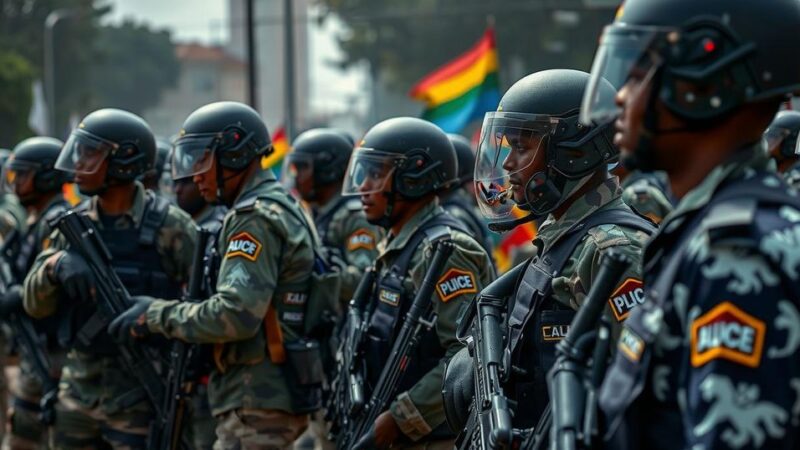Daniel Chapo of the Frelimo party has been declared the winner of Mozambique’s presidential election, securing 71% of the vote amidst allegations of fraud and violence. Protests erupted in the capital, Maputo, accusing Frelimo of election rigging as unrest continues to spill over from an ongoing insurgency in Cabo Delgado.
On Thursday, Mozambique’s electoral commission announced that Daniel Chapo of the Frelimo party emerged victorious in the presidential election held on October 9, securing approximately 71 percent of the vote. Chapo’s win, however, comes amid significant unrest and allegations of electoral fraud, as observers noted the election process was tarnished by violence and irregularities. He succeeds Filipe Nyusi, who has reached the limit of two five-year terms. The atmosphere surrounding the election was fraught with tension, particularly as the country grapples with ongoing violence from an Islamist insurgency in Cabo Delgado province. The insurgency has exacerbated existing social disparities, highlighting the stark contrast between those profiting from Mozambique’s abundant resources—such as natural gas and gemstones—and the widespread poverty affecting much of the population. Protests erupted in the capital, Maputo, shortly after the election results were announced, with demonstrators accusing Frelimo of election rigging and demanding accountability for the violent clashes that resulted in the deaths of two supporters of Chapo’s main opposition. In response to these allegations, Frelimo representatives maintain that their electoral practices upheld the democratic will of the populace, with spokesperson Ludmila Maguni stating, “Frelimo is confident that the results reflect the will of the people.” The tensions surrounding the election and subsequent civil unrest represent a significant challenge to Frelimo’s longstanding authority since the party’s rise to power post-independence from Portugal in 1975 and its endurance throughout Mozambique’s civil war.
The situation in Mozambique reflects broader societal issues, including persistent violence due to insurgencies and the economic disparity exacerbated by the nation’s rich natural resources. Frelimo, which has held authority for nearly five decades, finds itself confronted with internal dissent and external pressures. This election was pivotal not only for the change in leadership but also for the stability of the country, which continues to grapple with the aftereffects of prolonged civil conflict and the ongoing battle against poverty and unemployment.
In summary, the recent presidential election in Mozambique has unveiled critical issues surrounding electoral integrity and public dissent against the ruling party. Daniel Chapo’s victory, amidst allegations of electoral misconduct and violent protests, poses a significant challenge to Frelimo’s governance approach in an increasingly polarized political landscape. The outcome reflects the deep-seated tensions in the nation, as conflicts related to resource distribution and political representation continue to rise.
Original Source: www.nytimes.com
